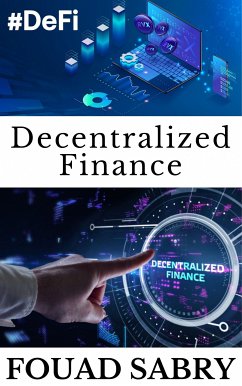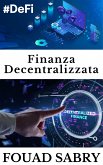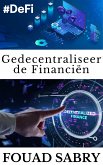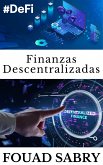What Is Decentralized Finance
Decentralized Finance is a blockchain-based form of finance that does not rely on central financial intermediaries such as brokerages, exchanges, or banks to offer traditional financial instruments, and instead utilizes smart contracts on blockchains, the most common being Ethereum.
There are some major advantages of using DeFi, including cost, speed and security. Anyone with an internet connection has access to blockchains and cryptocurrencies. Users are able to make trades and move their assets whenever they want without having to wait on bank transfers or pay bank fees.
Decentralized finance is quickly rising as a more secure, more transparent, and more efficient alternative to traditional financial services. By eliminating the need for centralized financial institutions, we create a more open and trustworthy financial system, and one that's far more accessible.
Therefore, decentralized finance is a very near equivalent of an apocalyptic event for the traditional financial institutions.
How You Will Benefit
(I) Insights, and validations about the following topics:
Chapter 1: Decentralized Finance
Chapter 2: Blockchain
Chapter 3: Smart Contract
Chapter 4: Cryptocurrency
Chapter 5: Virtual Currency
Chapter 6: Central Bank Digital Currency
Chapter 7: E-Democracy
Chapter 8: Ethereum
Chapter 9: Bitcoin
Chapter 10: Diem (digital Currency)
(II) Answering the public top questions about decentralized finance.
(III) Real world examples for the usage of decentralized finance in many fields.
(IV) 17 appendices to explain, briefly, 266 emerging technology in each industry to have 360-degree full understanding of decentralized finance' technologies.
Who This Book Is For
Professionals, undergraduate and graduate students, enthusiasts, hobbyists, and those who want to go beyond basic knowledge or information for any kind of decentralized finance.
Decentralized Finance is a blockchain-based form of finance that does not rely on central financial intermediaries such as brokerages, exchanges, or banks to offer traditional financial instruments, and instead utilizes smart contracts on blockchains, the most common being Ethereum.
There are some major advantages of using DeFi, including cost, speed and security. Anyone with an internet connection has access to blockchains and cryptocurrencies. Users are able to make trades and move their assets whenever they want without having to wait on bank transfers or pay bank fees.
Decentralized finance is quickly rising as a more secure, more transparent, and more efficient alternative to traditional financial services. By eliminating the need for centralized financial institutions, we create a more open and trustworthy financial system, and one that's far more accessible.
Therefore, decentralized finance is a very near equivalent of an apocalyptic event for the traditional financial institutions.
How You Will Benefit
(I) Insights, and validations about the following topics:
Chapter 1: Decentralized Finance
Chapter 2: Blockchain
Chapter 3: Smart Contract
Chapter 4: Cryptocurrency
Chapter 5: Virtual Currency
Chapter 6: Central Bank Digital Currency
Chapter 7: E-Democracy
Chapter 8: Ethereum
Chapter 9: Bitcoin
Chapter 10: Diem (digital Currency)
(II) Answering the public top questions about decentralized finance.
(III) Real world examples for the usage of decentralized finance in many fields.
(IV) 17 appendices to explain, briefly, 266 emerging technology in each industry to have 360-degree full understanding of decentralized finance' technologies.
Who This Book Is For
Professionals, undergraduate and graduate students, enthusiasts, hobbyists, and those who want to go beyond basic knowledge or information for any kind of decentralized finance.
Dieser Download kann aus rechtlichen Gründen nur mit Rechnungsadresse in A, B, BG, CY, CZ, D, DK, EW, E, FIN, F, GR, H, IRL, I, LT, L, LR, M, NL, PL, P, R, S, SLO, SK ausgeliefert werden.









